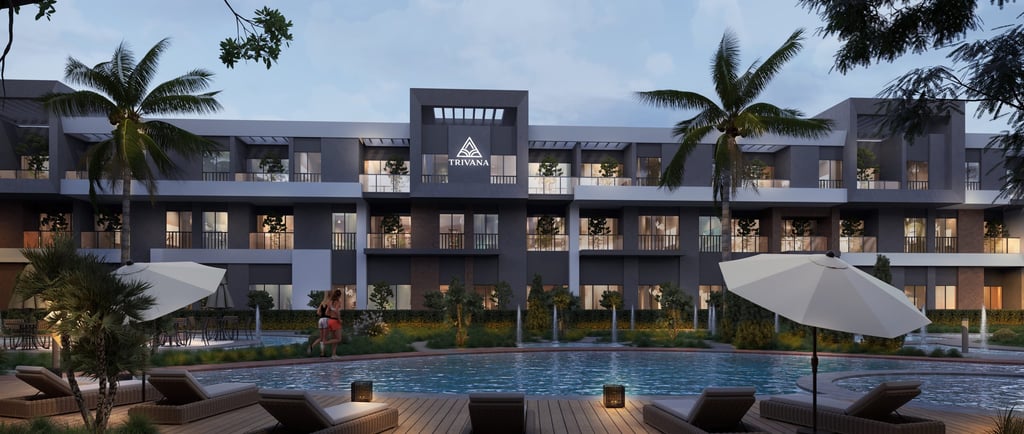A Comprehensive Guide to Buying Property in Hurghada as a Foreigner
The legal framework governing property purchases in Egypt serves as a critical foundation for foreign buyers interested in Hurghada. Foreign property ownership in Egypt is permitted under certain conditions, primarily defined by the laws enacted to encourage investment while maintaining regulatory oversight. Presently, non-Egyptian nationals can purchase residential properties, specifically apartments and villas, but commercial properties are subject to more stringent regulations and may require partnerships with local entities.
A Comprehensive Guide to Buying Property in Hurghada as a Foreigner
6/5/20255 min read


Understanding the Legal Framework
The legal framework governing property purchases in Egypt serves as a critical foundation for foreign buyers interested in Hurghada. Foreign property ownership in Egypt is permitted under certain conditions, primarily defined by the laws enacted to encourage investment while maintaining regulatory oversight. Presently, non-Egyptian nationals can purchase residential properties, specifically apartments and villas, but commercial properties are subject to more stringent regulations and may require partnerships with local entities.
One of the most significant aspects to be aware of is that foreign buyers are limited to a maximum of 50% ownership of any residential building. This restriction aims to maintain a balanced property market and ensure local citizens retain ownership stakes. Potential buyers must also acquire the relevant documentation before purchasing property in Hurghada. This includes obtaining a tax number, securing a valid residency status (which can sometimes be obtained through investment), and compiling necessary identification documents, such as passports and proof of income.
Additionally, foreign buyers must adhere to the regulations set forth by the Egyptian Ministry of Defence, which require prior approval to purchase land or property near sensitive areas. This could include military zones or locations deemed strategically important. Prospective buyers should consult with a legal expert who specializes in Egyptian property law to ensure compliance and navigate the intricacies of the buying process.
In order to finalize the acquisition of property in Hurghada, a sales contract must be signed, often with the assistance of a lawyer to interpret the terms effectively. Once the purchase is complete, buyers must register the property with the Egyptian Land Registry. This ensures that ownership is officially recognized and protects against potential disputes in the future.
Being well-informed about the legal requirements significantly increases the likelihood of a successful property investment in Hurghada, ensuring that foreign buyers can navigate the sometimes complex landscape of Egyptian property law with confidence.
Choosing the Right Type of Property
When considering a property purchase in Hurghada as a foreigner, it is essential to evaluate the different types of properties available in the market. The most common property options include apartments, villas, and commercial spaces, each offering distinct advantages and disadvantages that can cater to various lifestyles and needs.
Apartments are typically the most accessible option for foreign buyers, with diverse offerings ranging from studio flats to larger multi-bedroom units. These properties tend to be located in centralized neighborhoods, providing easy access to amenities such as beaches, restaurants, and shopping centers. Additionally, apartments often present a lower entry price point, making them an attractive option for those looking to invest without a significant financial commitment. However, prospective buyers should be mindful of shared facilities and the potential for increased noise levels typical in apartment complexes.
On the other hand, villas represent a more luxurious choice, offering expansive living spaces, outdoor areas, and privacy. Located in more secluded areas, they often feature private pools and landscaped gardens, appealing to families or individuals seeking a tranquil lifestyle. While purchasing a villa can provide a more substantial investment opportunity, buyers should consider the higher maintenance costs and the need for ongoing management, particularly when purchasing properties in resort areas.
Commercial spaces also present a viable investment avenue for those interested in generating rental income or launching a business venture. Hurghada's thriving tourism sector creates potential for lucrative opportunities in this segment. However, the commercial real estate market can be volatile, and thorough market research is crucial to understanding the viability of such investments.
Understanding the local real estate market trends is vital to making an informed decision. Factors such as supply and demand dynamics, economic growth, and government regulations can significantly influence property values. Thus, conducting due diligence and seeking professional advice before purchasing property in Hurghada will enhance the chances of achieving a desirable investment tailored to individual preferences.
The Buying Process Explained
Buying property in Hurghada as a foreigner is a systematic process that requires careful planning and attention to detail. The journey typically begins with an initial property search, where potential buyers can explore online listings, contact local real estate agents, or visit the area to identify desirable neighborhoods and properties. Given that the market can be diverse, it is essential to assess factors such as the type of property, proximity to amenities, and potential for rental income.
Once a suitable property is located, prospective buyers should conduct evaluations to ensure the property meets their expectations. This phase includes checking the legal status of the property, verifying ownership, and ensuring it complies with local regulations. Engaging a reputable lawyer who understands Egyptian property law can be advantageous during this stage, providing legal insights and protecting the buyer's interests.
After confirming the property's viability, the next step involves making an offer. This stage often includes negotiating price, terms, and conditions with the seller. Buyers should communicate their intentions clearly and be prepared for counteroffers. It is beneficial to approach negotiations realistically, considering comparable properties in the area to arrive at a fair price.
Securing financing is a crucial part of the buying process, particularly for overseas buyers. Many foreign purchasers choose to finance their property through local banks or international lenders. Understanding the various financing options available is vital. Buyers should also ensure they have all requisite documentation prepared for the loan application process. This may include proof of income, identification, and the property sale agreement.
Finally, once negotiations and financing are in place, the transaction moves towards completion. This phase includes signing contracts, paying any applicable taxes, and registering the property with the relevant authorities. Ensuring that all legal documents are thoroughly reviewed before finalization is necessary to avoid potential disputes in the future. By following this structured approach, foreign buyers can navigate the intricacies of purchasing property in Hurghada with greater confidence and assurance.
Post-Purchase Considerations
Once the decision to purchase property in Hurghada has been made, several considerations must be addressed to ensure a smooth transition into homeownership. One critical aspect involves property management options. Foreigners may face challenges in managing their property from afar, prompting the need for professional management services. Hiring a local property management company can assist in overseeing the day-to-day maintenance, rental arrangements, and other operational tasks. This ensures that the property remains in good condition and generates revenue if it is intended for rental purposes.
Maintenance concerns should also be prioritized, as owning property entails ongoing responsibilities. Understanding the specifics of the local climate and potential wear and tear on buildings is essential. It is advisable to establish a routine for regular inspections and repairs to mitigate larger issues that could arise over time. Knowing reliable local contractors for repairs can also ease the burden of upkeep.
Furthermore, understanding community regulations is vital for new homeowners. Each area may have specific bylaws and regulations that govern noise levels, property modifications, and communal resource usage. Familiarity with these rules will not only help avoid conflicts with neighbors but also ensure compliance with local laws.
Tax obligations can also be complex for foreign property owners. It is essential to seek expert advice regarding local taxes on property ownership, rental income, and any other obligations that may arise. Educating oneself about these responsibilities can help prevent any financial penalties in the future.
Finally, settling into the community can enhance the ownership experience. Engaging with local residents, participating in community events, and exploring the cultural offerings of Hurghada can facilitate meaningful connections. This integration ultimately contributes to a richer lifestyle and helps maximize the enjoyment of the investment made in property.
